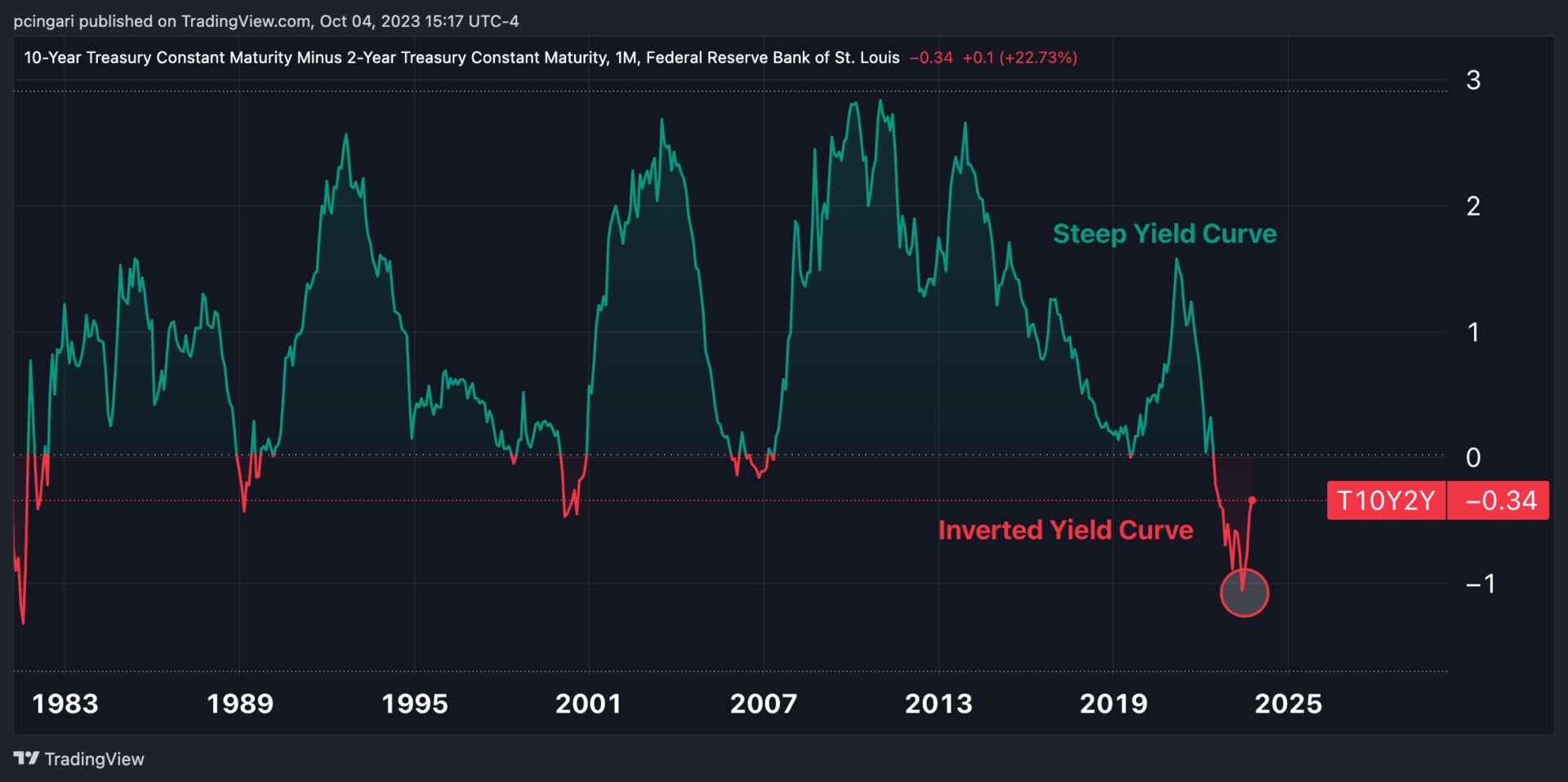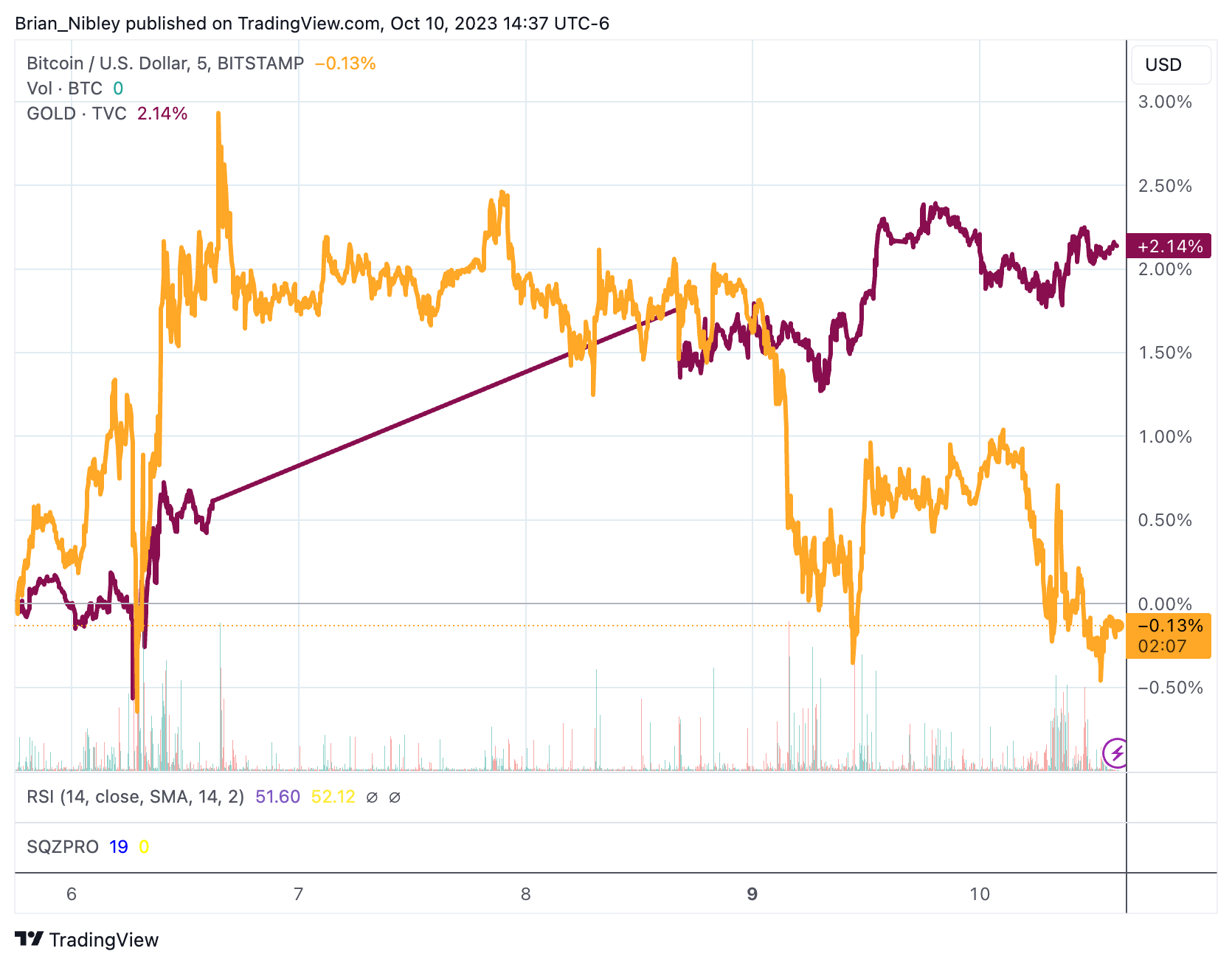Investing legend Paul Tudor Jones has revealed that he’s bearish on stocks and bullish on gold and Bitcoin (BTC).
The two main reasons he cites are the potential for an escalation of the conflict between Israel and Hamas, and subpar fiscal conditions in the United States. While an inverted yield curve wasn’t included in Tudor’s comments, it’s yet another important factor for investors to consider.
Geopolitical conflicts exacerbate macro uncertainty
In a recent interview with CNBC, Jones mentioned the factors he’s keeping an eye on with regard to the Israel-Palestine conflict before deciding that market uncertainty has been reduced. His general thesis is that if things escalate further, a risk-off sentiment could prevail in financial markets.
Despite the potential for geopolitical tensions escalating in the near-term, the major U.S. indexes have all posted gains for the first two trading days of this week. If Jones is right, this rally will likely be short-lived.
The yield curve remains deeply inverted
One of the greatest predictors of recession historically has been the yield curve. Every recession since 1955 has been preceded by an inversion of the curve between the yields of the 2-year and 10-year Treasury Bonds.
In July, the 2s/10s yield curve for US Treasuries hit a low of 109.5 basis points (BPS). This level had not been seen since 1981. While this inversion has since steepened, things still look bad from the perspective of shorter duration Treasuries.
The 1-month and 3-month US T-bills are currently yielding close to 5.5%, while the 2-year note is yielding close to 4.96%. The 10-year is yielding 4.65%, meaning the 2s/10s curve is inverted by 31 BPS.
A flatter yield curve compresses margins for banks because it limits their ability to borrow cash at lower rates while lending at higher rates, which can lead to restricted lending activity and a resulting economic slowdown. It also means that investors are less optimistic about the near-term future of the economy, as they sell shorter duration debt, causing yields to rise.
See related: Binance Freezes Hamas Linked Accounts at Israeli Request
The Federal Reserve’s attempt to fight inflation by raising rates at the fastest pace in modern history has also played a role. Higher rates create additional stress on the banking system, which has seen 3 of the 4 largest collapses in U.S. history this year alone with the failures of Signature Bank, First Republic Bank, and Silicon Valley Bank.
Some market observers speculate that the Fed will have to begin lowering rates as soon as early 2024 to prevent further economic fallout, even if inflation has not come down to the Fed’s desired level.
Easier monetary policy and its corresponding liquidity boost tends to be bullish for crypto markets. If rates do fall going into the 2024 Bitcoin halving cycle, the stage could be set for significant market moves.

Bitcoin and gold remain the preferred safe havens
Amidst all this chaos, gold and BTC have remained resilient.
BTC has fallen 2% in the last two trading days, being flat over the last 5 days, while gold is up 2% during the same time.
Paul Tudor Jones summarized his position on gold and BTC, saying:
“I can’t love stocks,” he said, “but I love bitcoin and gold.”
The billionaire has said on the record that he maintains a 5% allocation to BTC and he sees gold and BTC as being safe haven bids during uncertain times. Tudor first announced that he made a 1% allocation to BTC in May of 2020 during the COVID pandemic lockdowns.

All things considered, Paul Tudor Jones could be right. Time will tell if his bearish call for equities plays out, or if risk-on sentiment somehow prevails in spite of recent events.
This article does not contain investment advice or recommendations. Every investment and trading move involves risk, and readers should conduct their own research when making a decision.




